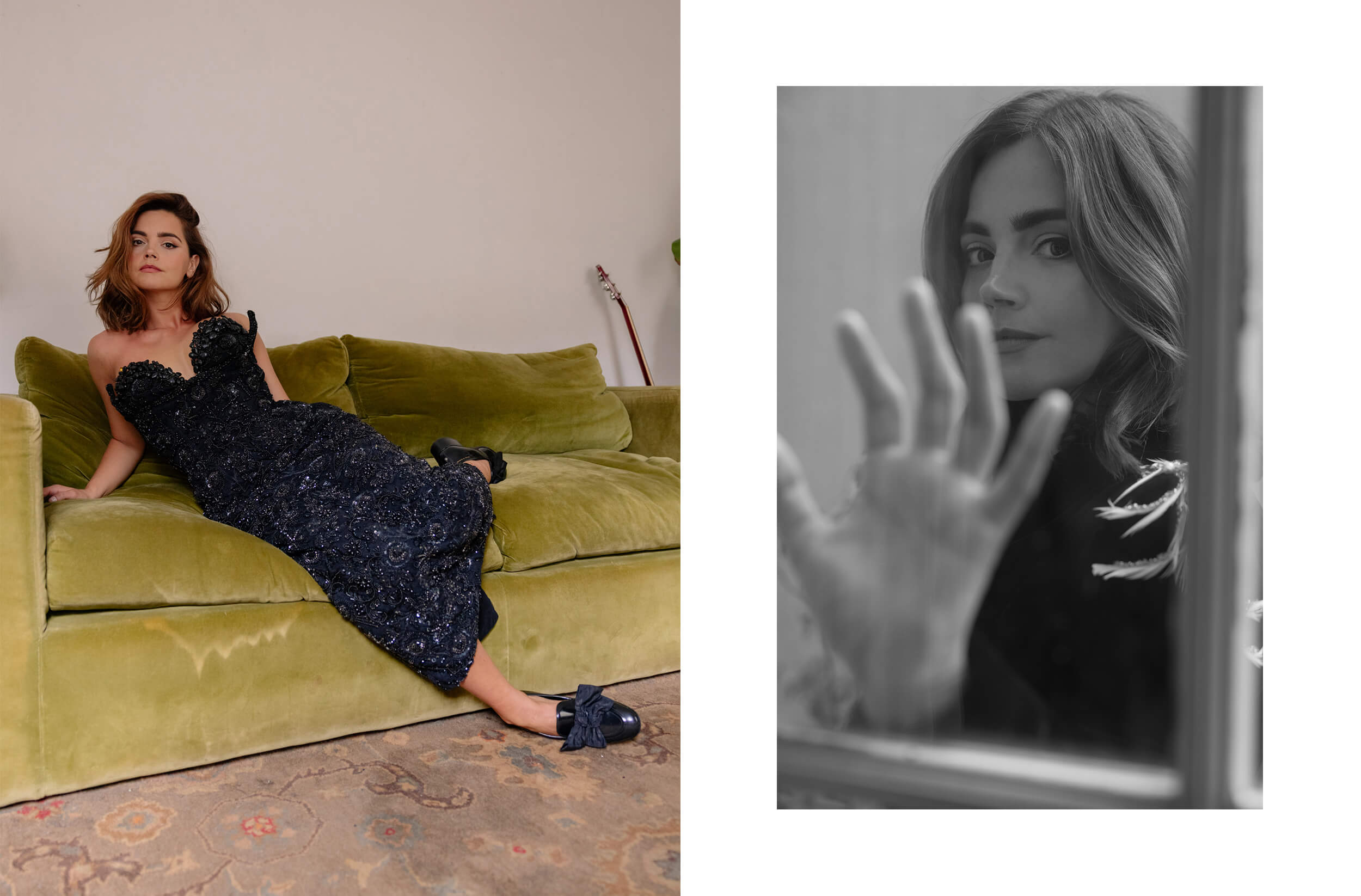On a hot summer day, nevermind London’s annoyingly bad Wi-Fi connection, a chat with Jenna Coleman for our August Cover Story was the best company and distraction from a series of threats of fainting due to my low blood pressure and Milan’s boiling air temperatures. When we Zoomed, she wanted to know where I was calling her from, she wanted to know how my colleagues were doing, she was curious about me and about us. At that point, when Jenna showed genuine interest in the scraped white wall and green leaves on my background, and revealed a glimpse of her living room in her house, her happy place, I realized she is one of the most down-to-earth entertainment industry people I’ve talked to, so far. Perhaps, one of the most down-to-earth women I’ve talked to, as well.
One of my favorite parts of our chat was when we discussed perfection, the need to be perfect at all costs, to live up imaginary standards superimposed by our society which make us weak in our inability to be “unapologetically ourselves”. Like her character in the latest project she’s starred in, the TV series “Wilderness” where she plays a control-freak, vindictive wife living in a constantly heightened reality, where she needs to be the perfect female counterpart to her dominating male partner. Or at least she thought she needed to. When Jenna wondered out loud, “What even is perfection?”, and I found I couldn’t answer to that question and, at the same time, I didn’t care to know, I realized that maybe things are really changing, like she said, especially for women and women in cinema. Starting from me, starting from her and the new generation of actors and young people in general whom we both look up to.
Because the thing is we only are truly brave and bold when we show ourselves in all our complexities, and that’s a fact now.
* The interview and photo shoot took place prior to the SAG-AFTRA Strike.
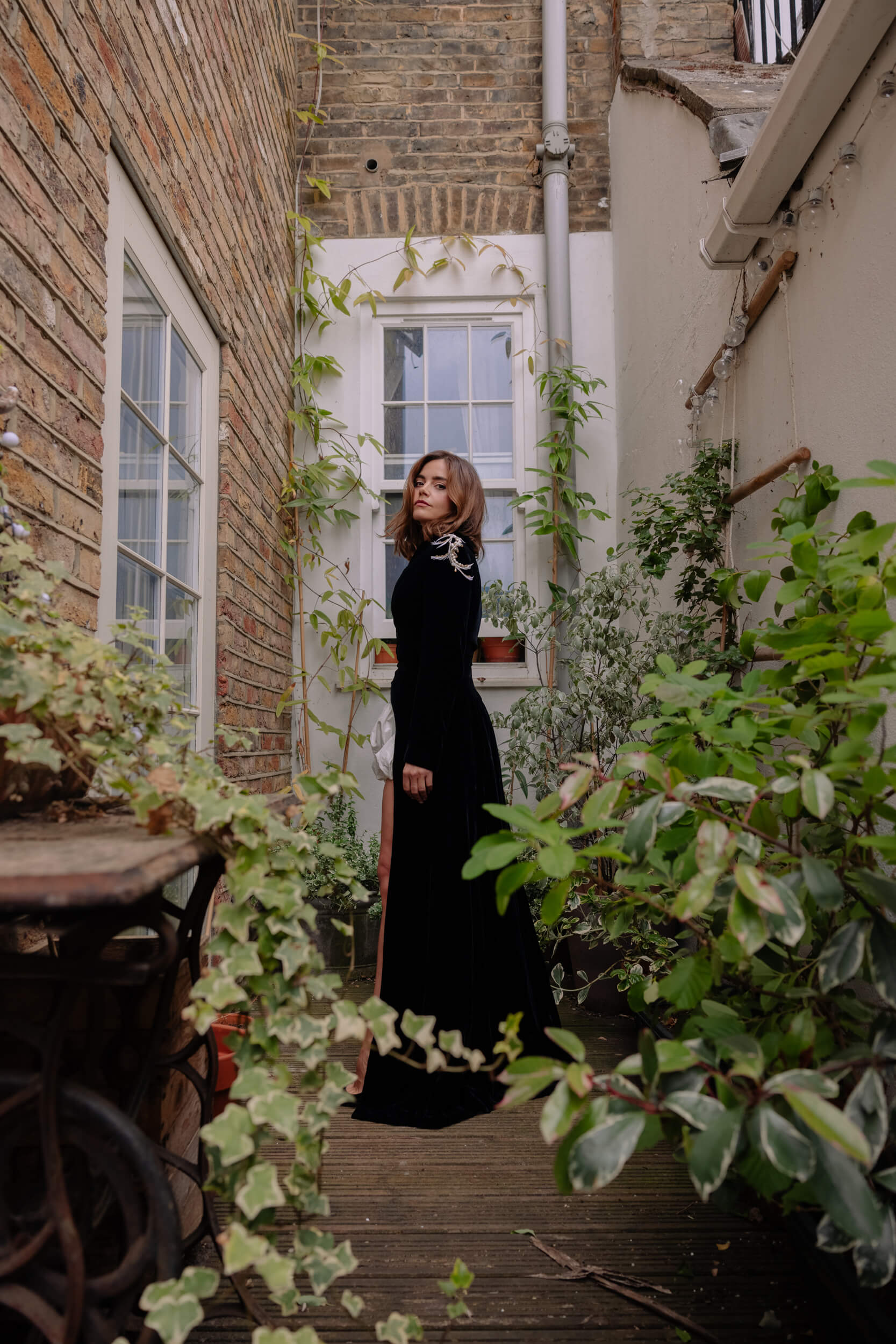
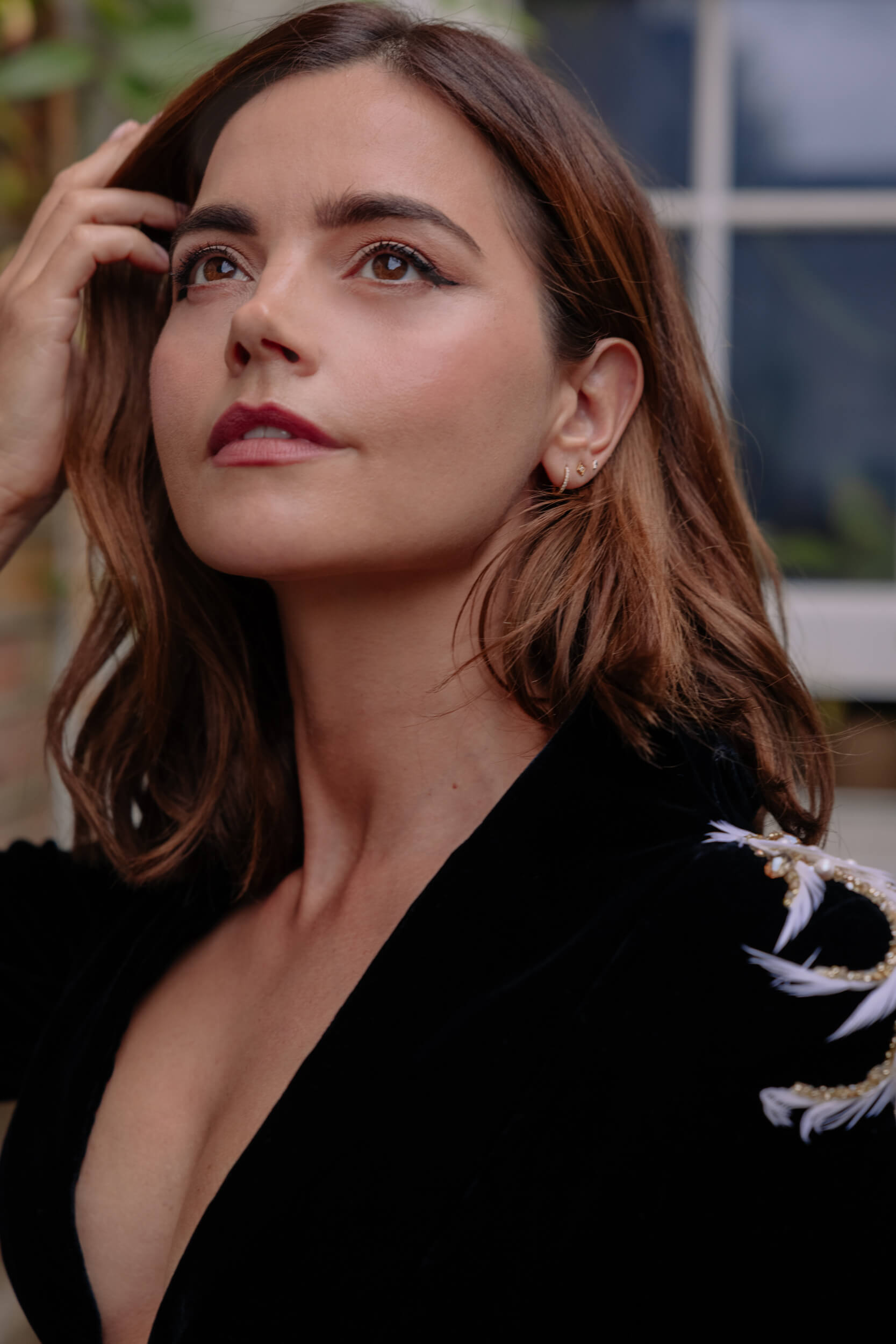
What’s your first cinema memory?
My first cinema memory is “My Girl” with Macaulay Culkin: that was the very first film that made me feel overwhelmed by emotions while watching, it had that kind of power. Some other memories are related to what we would watch in my house, like “West Side Story”, “Oliver”, “Black Beauty”; I remember we would watch lots of musicals, actually. Also, “Back to the Future” and “Never Ending Story”, I think I watched that film 50 times or something like that! [laughs]
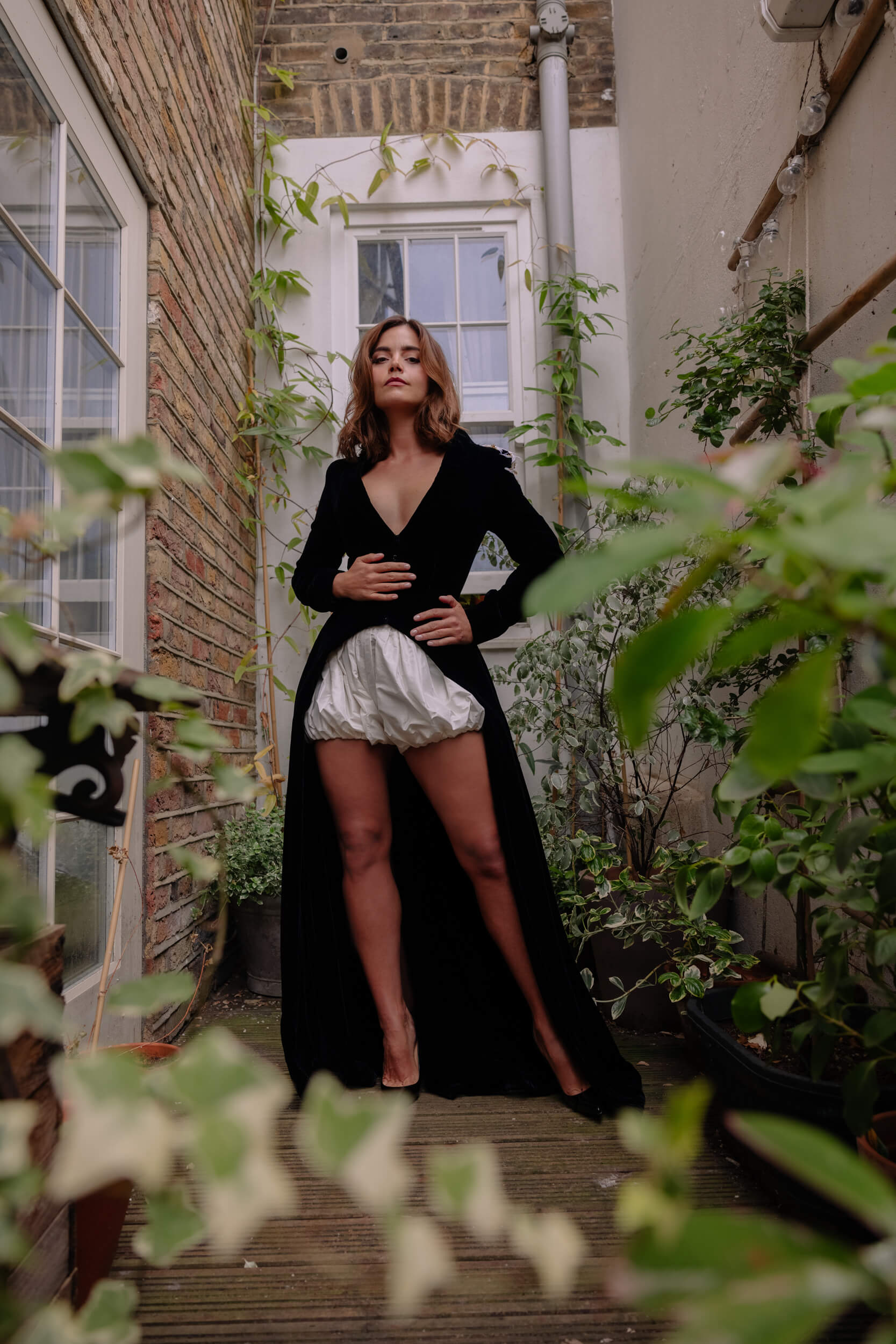
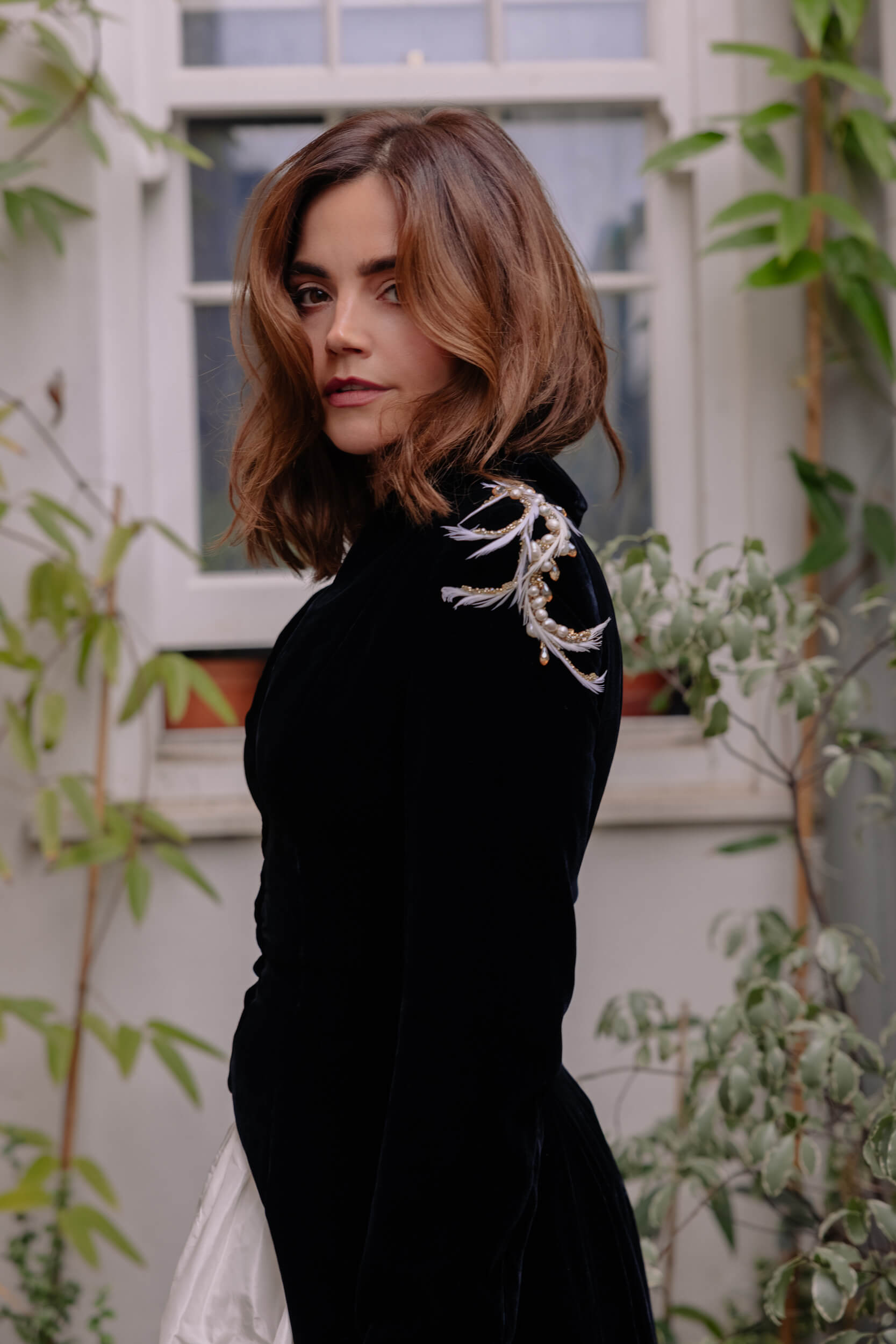
“Doctor Who”, “Victoria”, “The Sandman”, “The Serpent”, and now “Wilderness”, just to name a few of the projects you’ve starred in so far. Needless to say, you’ve been playing quite a wide range of characters, both in cinema and TV, all very different from one another: what was the most challenging role you’ve taken on so far and in which terms has it been so for you?
What I found is that each role brings its own challenges. In “Wilderness”, for example, my character is in such a held, heightened state of immense anxiety and pressure, so to hold that over the course of the three/four months of shooting, to keep that heightened energy was a challenge. I found that on “Wilderness” there was such an intensity because the whole show is based on a mechanism for which you have something bad that happens and the next one gets worse and worse. To keep Liv, my character, in that suspended state for so long was incredibly challenging.
So, different roles bring different challenges for different reasons, but in a fun way. “The Serpent” was incredibly challenging because I hadn’t spoken any French three weeks before I started shooting, and for me it was all supposed to be a process of working with a French actor in a language I don’t speak, and this was incredibly challenging: trying to get to the level where you weren’t just speaking a language, it was trying to have an accent in another language, that kind of detail was immensely challenging. “Victoria” because you were trying to dig in history, but the thing is that history puts forward a version and you get different opinions, for example people think Queen Victoria is a certain way because she looks grumpy on her portrait; so, the challenge of that was trying to find the truth in the essence of the human behind her public persona, diving within the biased history, so to speak. “Doctor Who” because of the green screen acting, probably; “The Cry” because it wasn’t easy to find something instinctive, representing the loss a child while not having children, I felt that kind of pressure. Anyhow, the French was probably the hardest thing.
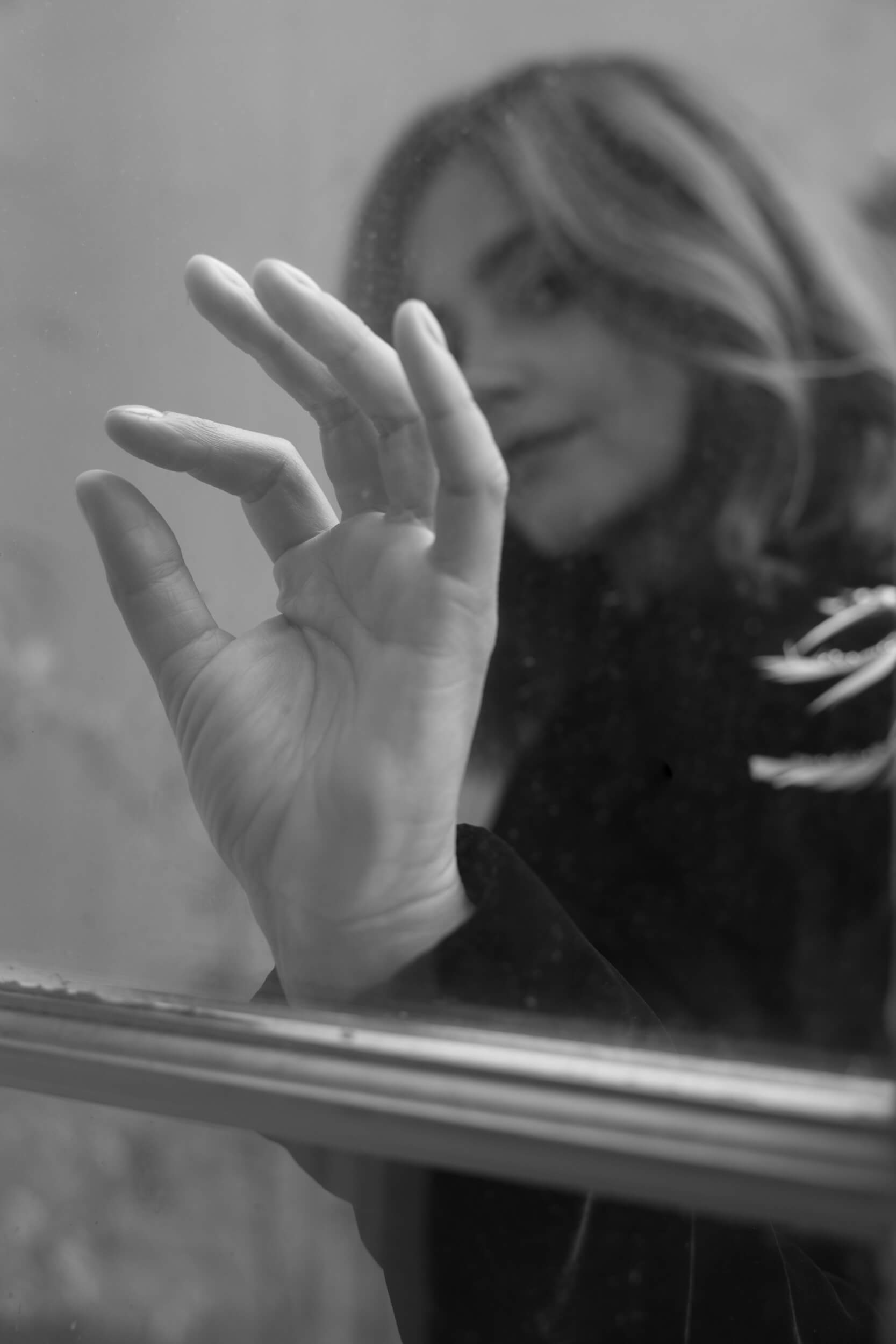
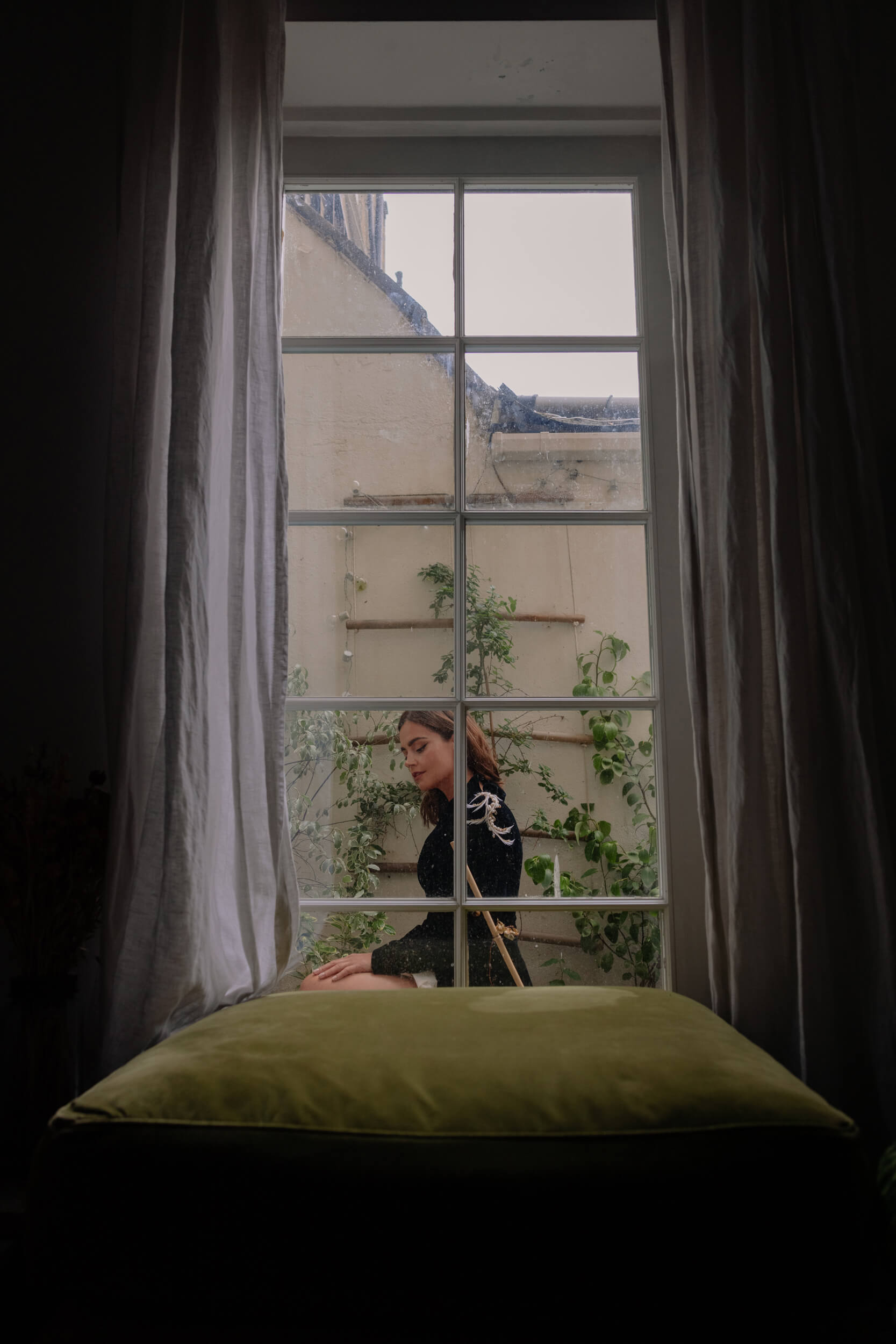
Indeed, “Wilderness”, like you said, is about bad things happening one after another, and trying to survive in extreme situations. Furthermore, at some point, a series of events leads your character, Olivia, to free herself from the doom of being like her mother and take revenge against her “wrong” and toxic relationship with her husband. How did you manage to connect with her? Could you somehow develop empathy for her?
Yeah, I did have empathy for her and I understood her and I thought that what was so interesting was that it feels like a very “coming-of-woman story”. She’s someone who doesn’t really know herself or isn’t listening to herself, and is co-dependent, unsure, she will bend herself to what society expects of her, the life she thinks that she should be living.
For me, along the line of the six episodes, it became a very primal story of her reclaiming her voice, and herself, and her boundaries, and I think that, especially for my generation, these themes have become very common, formative and primal. It is a kind of “Woman hear me roar” story, the journey that she goes on, but she needs to go to the darkest depths to be able to get out the other side. All of that was really well done in the script, but obviously the challenge, which is absolutely mental about the series, is how you’re asking the audience to empathize and side with a character who does things that are very morally wrong. It’s interesting to try and get the audience on that journey, and that was one of the biggest challenges for me and the only way to do that is to try and get the audience to understand that: that’s one of the hardest things about the show.
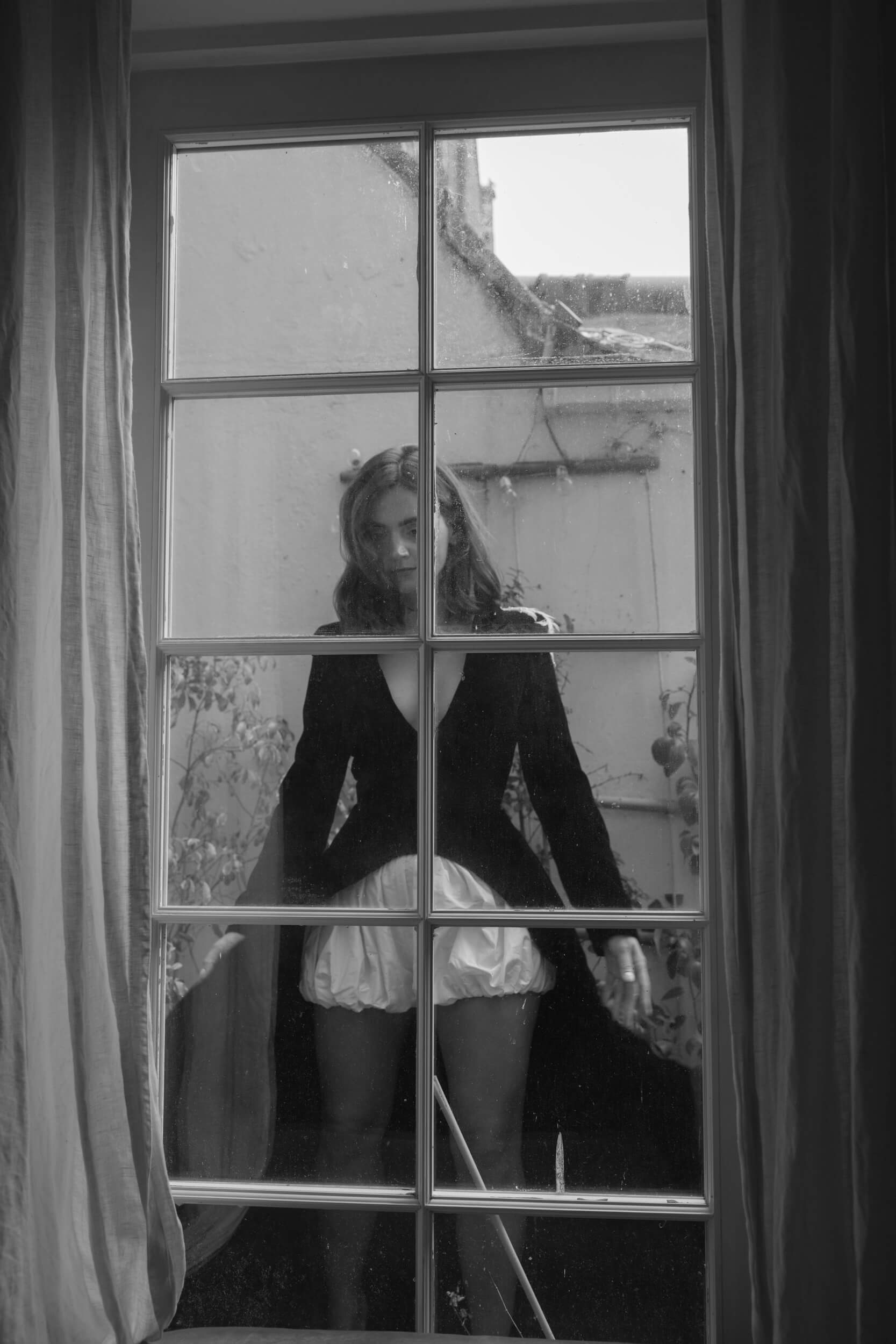
“You’re asking the audience to empathize and side with a character who does things that are very morally wrong.”
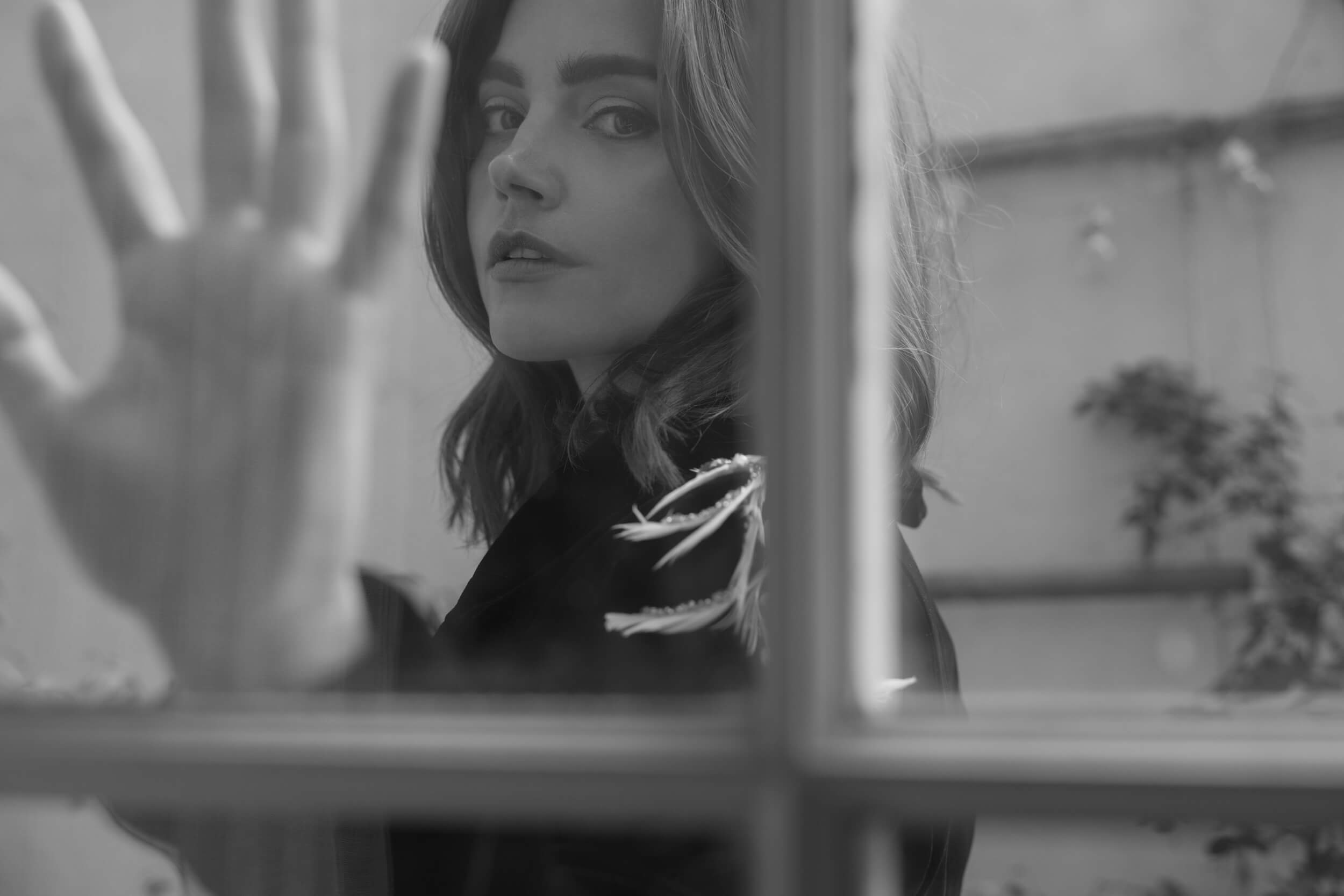
Besides the dark side of it all, I found that Olivia is obsessed by the need to be perfect, especially in her marriage: the perfect housekeeper, the perfect cook, the perfect travel companion, the perfect friend, the perfect lover. Do you think current feminine and social movements are changing the representation of women in films?
Yeah, I really do. I think people are uninterested in perfection now, I think it’s boring.
Even looking at the generation of actors beneath me, it’s so refreshing, I look at actors like Florence Pugh for example, and that honestly fills me up with so much confidence, in a way. The problem is that you’re told to be or you try to be in certain way, and to be unapologetically yourself is the boldest and bravest thing that you can do, as well as to show yourself, with your vulnerabilities, your weaknesses, your strengths, all of those complexities. I think that’s what people are interested in now, people don’t want to see someone who’s perfectly made up on the screen. If you think about “Euphoria”, for example, you see skin and spots, and I think people don’t want to be sold this old Hollywood allure all of the time. I think that is really changing.
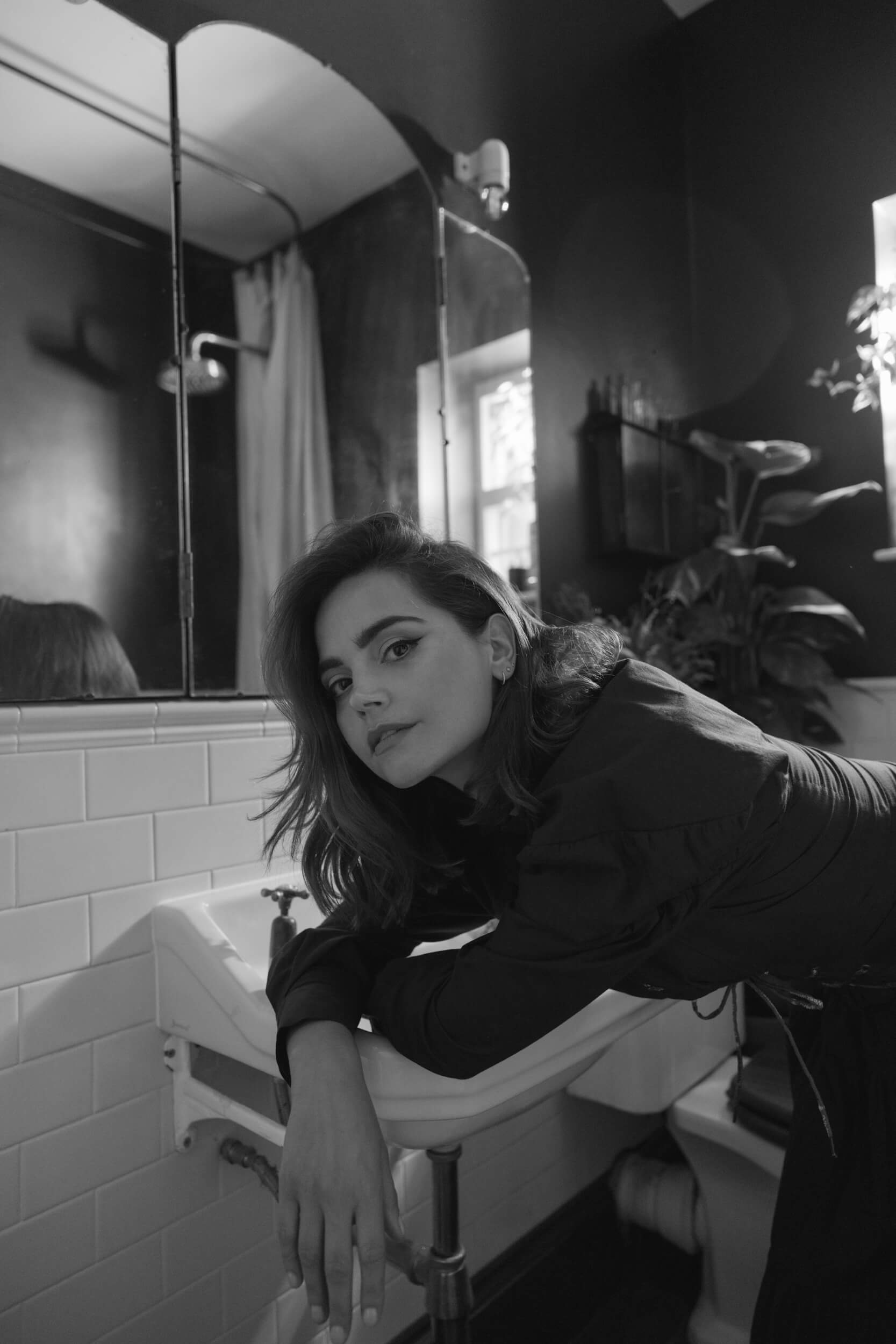
What’s your personal take on women’s need for perfection?
God, what even is that, what is perfection and who made those rules?
It’s interesting that I come from a dance background, so when I was younger, especially in my early 20s, I think some of that, the need for perfection, was in me from there, from the dance training. But the truth is people just want to see the real person.
“What is perfection and who made those rules?”
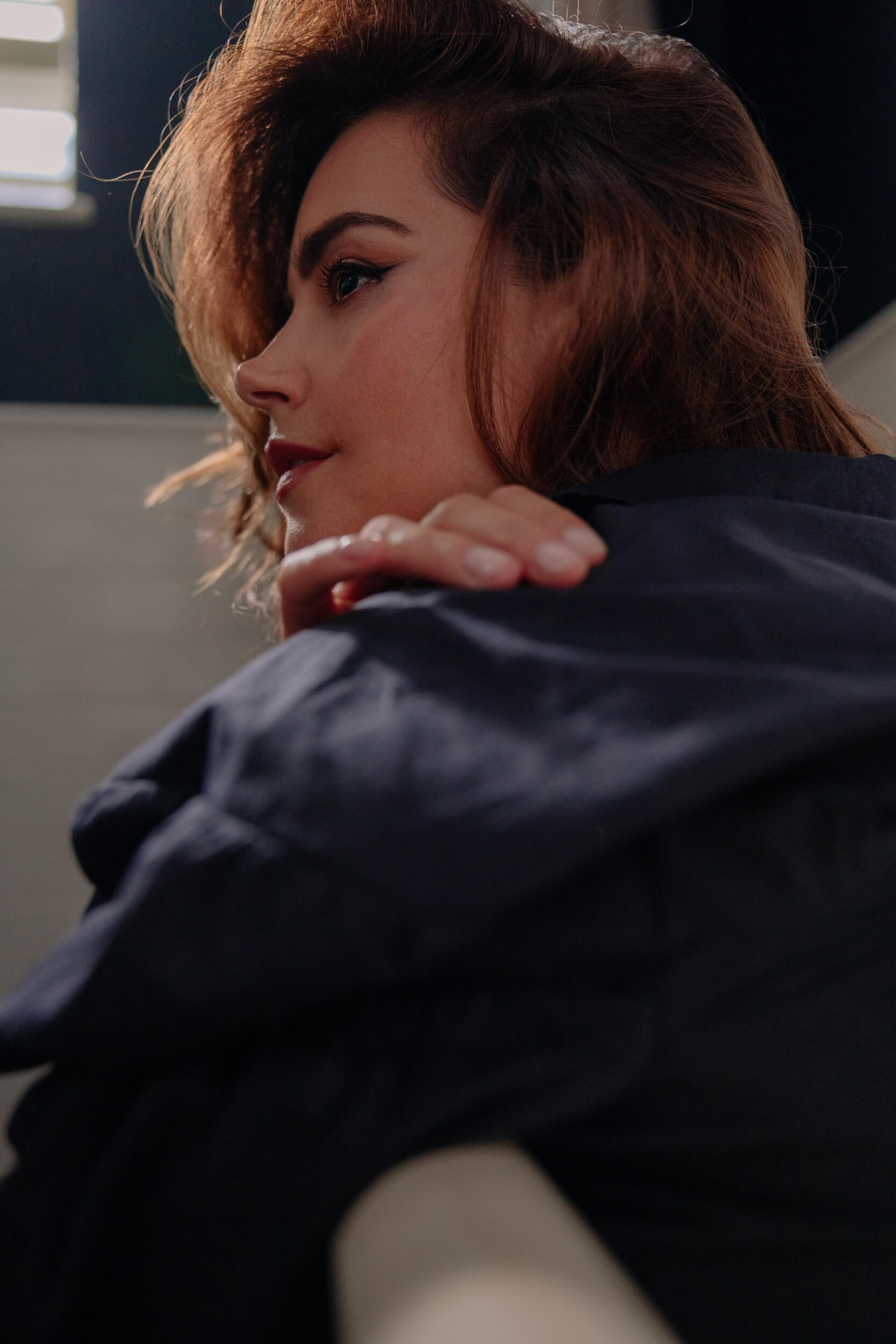
What’s the latest thing you discovered about yourself through to your job? And what did you discover about yourself while playing Olivia?
I would say I’ve been through a similar journey over the last couple of years, except for the murdering or trying to kill my husband, of course, that hasn’t been my story [laughs].
I would definitely say that now I feel like my edges are less blurred, I’ve come into myself a lot more, if that makes sense, and I feel almost ashamed to say that at the age that I am now, but it has taken me a long time. Again, I see people that are so much younger than me, in this industry in particular, and I am so full of admiration and awe.
You know, I took a beat after “The Serpent” and went into playing these angry roles [laughs], it’s interesting, looking back. I did a film called “Klokkenluider” which was so much fun, a real departure, where I play a really foul-mouth journalist who has these amazing speeches, and that was really fun, as well as “Sandman”; with Liv, it was great because it was all about the intensity of the time on set, and being in all of the time, your instincts take over, in a way, and you’re not as conscious, your creative flow is happening, and you’re in contemplation and let the other things happen and explore as an actor. With So and all the other directors I’ve worked with, it was was great, and I realized I can dip in, as long as I do the prep and the work. It was an incredibly emotionally exhausting part, but I have the confidence now to know myself enough, I have the ability to dip in and out, I feel like I know that as long as I do the work, the emotional range is all there and I know how to access it a lot better now.
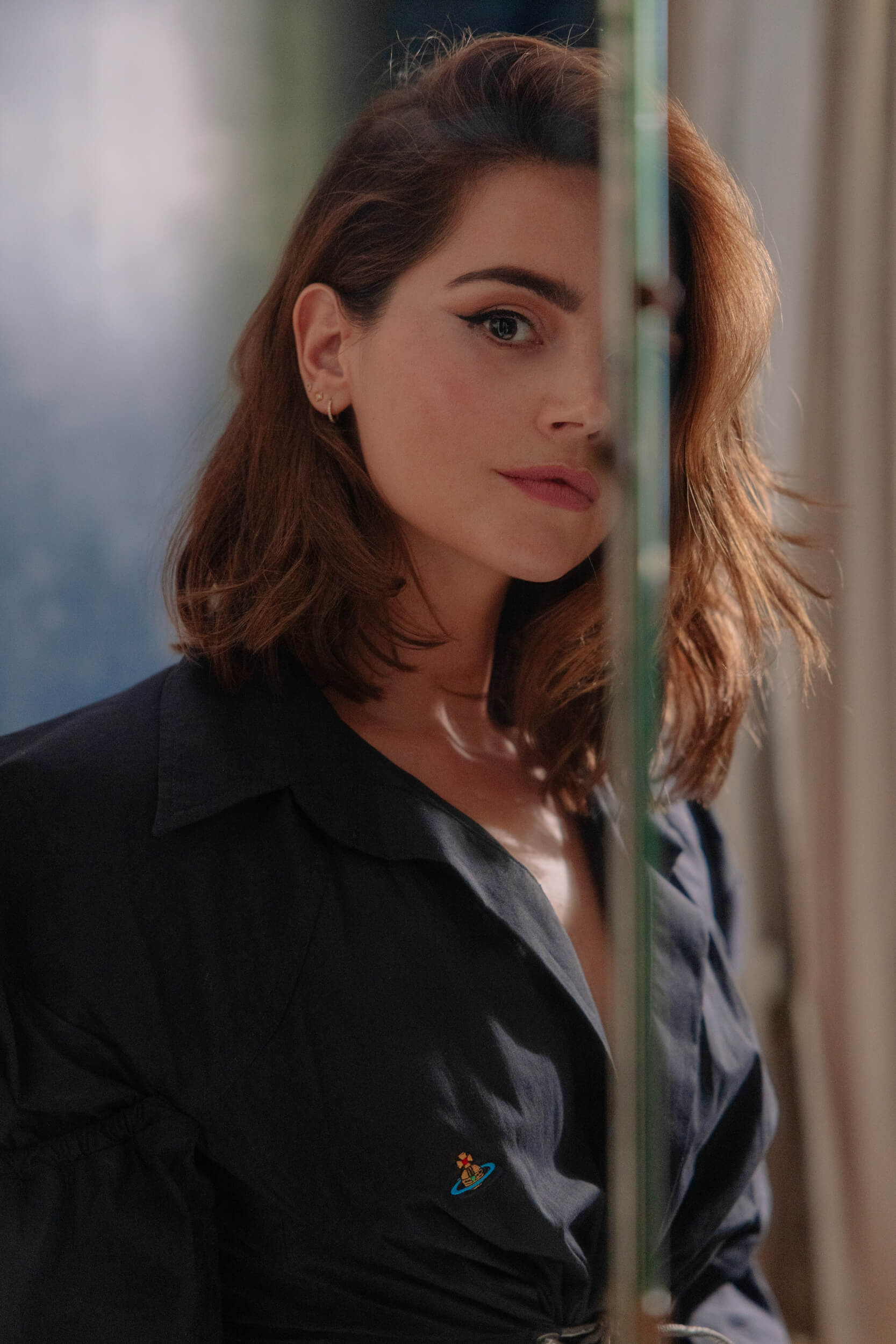
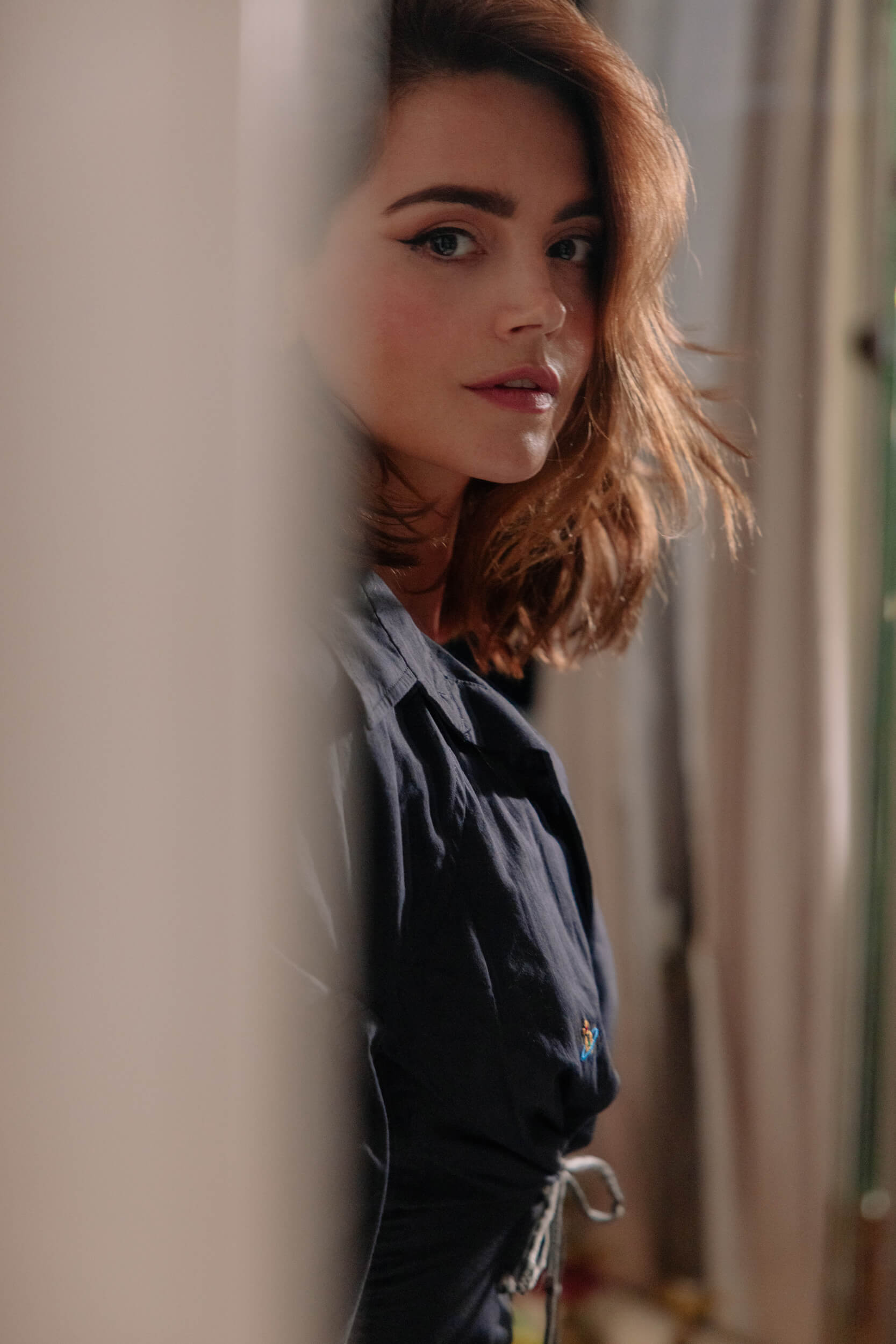
Speaking of challenges and challenging roles, what was the most challenging moment in your career?
I mean, Liv is in every scene in the series, I only went to Comic-Con for a few days, so I got three days off in the entire show. I remember we were shooting this bit where she goes to Las Vegas and falls in a sort of psychedelic trauma, she is hollowed out from the inside out, raw, broken, almost at the point of madness, and after that we went to Comic-Con, in the middle of it all, and that made me feel like I was literally the character [laughs]. The piece is very primitive and very visceral, there’s something so primal about the journey that Olivia goes on, she’s like a phoenix in the ashes. She’s driven to the point of madness, and there’s something Shakespearean and animalistic about it: it’s not only a cat and mouse dynamic between the husband and the wife, nor the phycological dynamics, but when someone’s pushed to such a point of emotional distress, the animal comes out and I think that staying in that state over the three/four months of shooting and the journey that she goes on is just fucking wild, basically. It was fun.
What’s a role you still haven’t played but you’d love to play sooner or later?
At the moment, there’s this common theme of murderers, I don’t know where it’s coming from, so I’d say let’s be done with the murdering [laughs]. I got offered another murderer role after this and I had to say no because I thought, “What is happening?”. What I’ve realized is that my characters in “The Cry”, “The Serpent” and “Wilderness” have all been in a very emotionally held, hidden kind of state, in a way; but I’ve recently watched “To Leslie” with Andrea Riseborough which I thought was phenomenal, or if I think about Victoria, they’re free, emotionally, so I’d definitely like to play something emotionally more volatile next! [laughs]
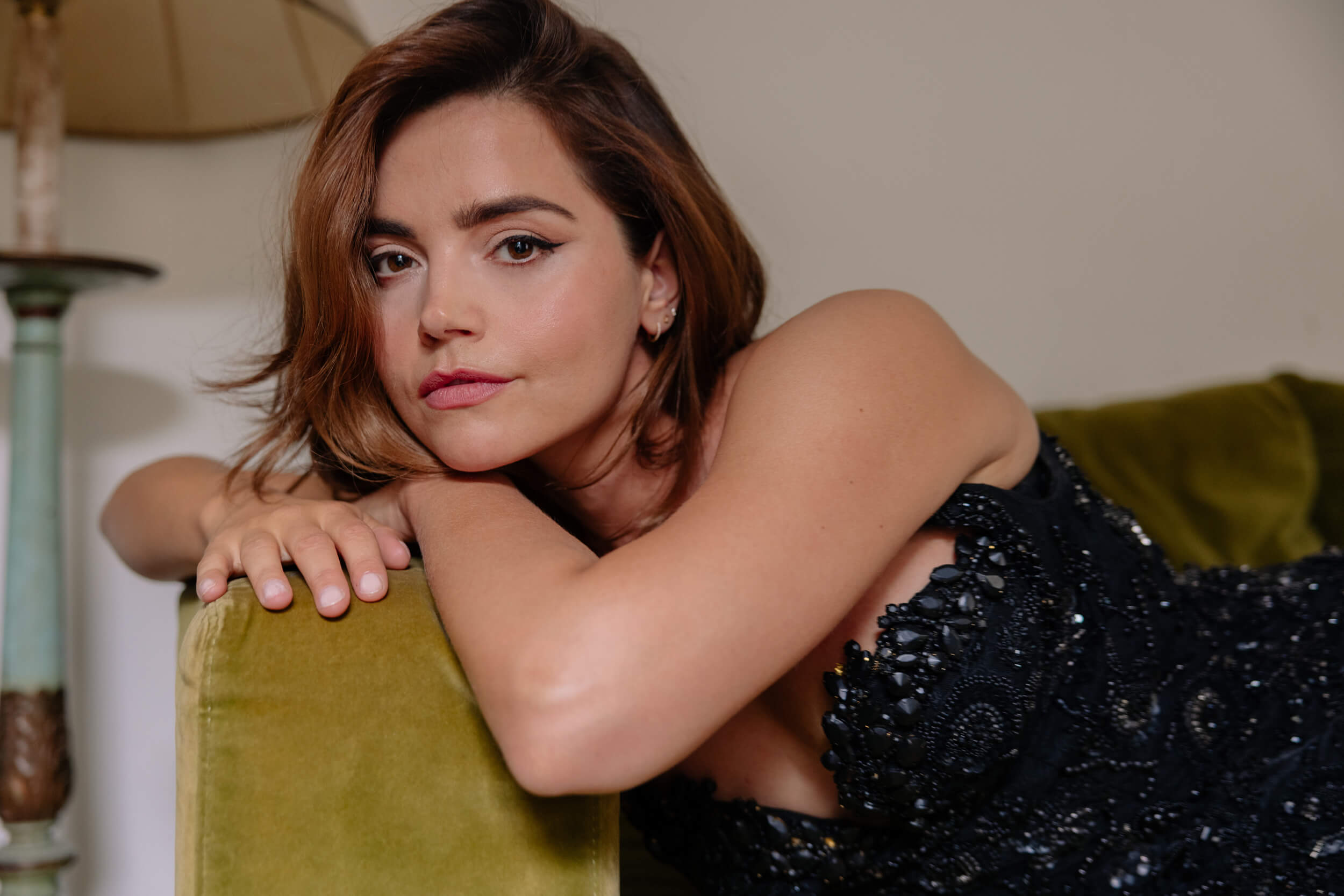
“When someone’s pushed to such a point of emotional distress, the animal comes out”
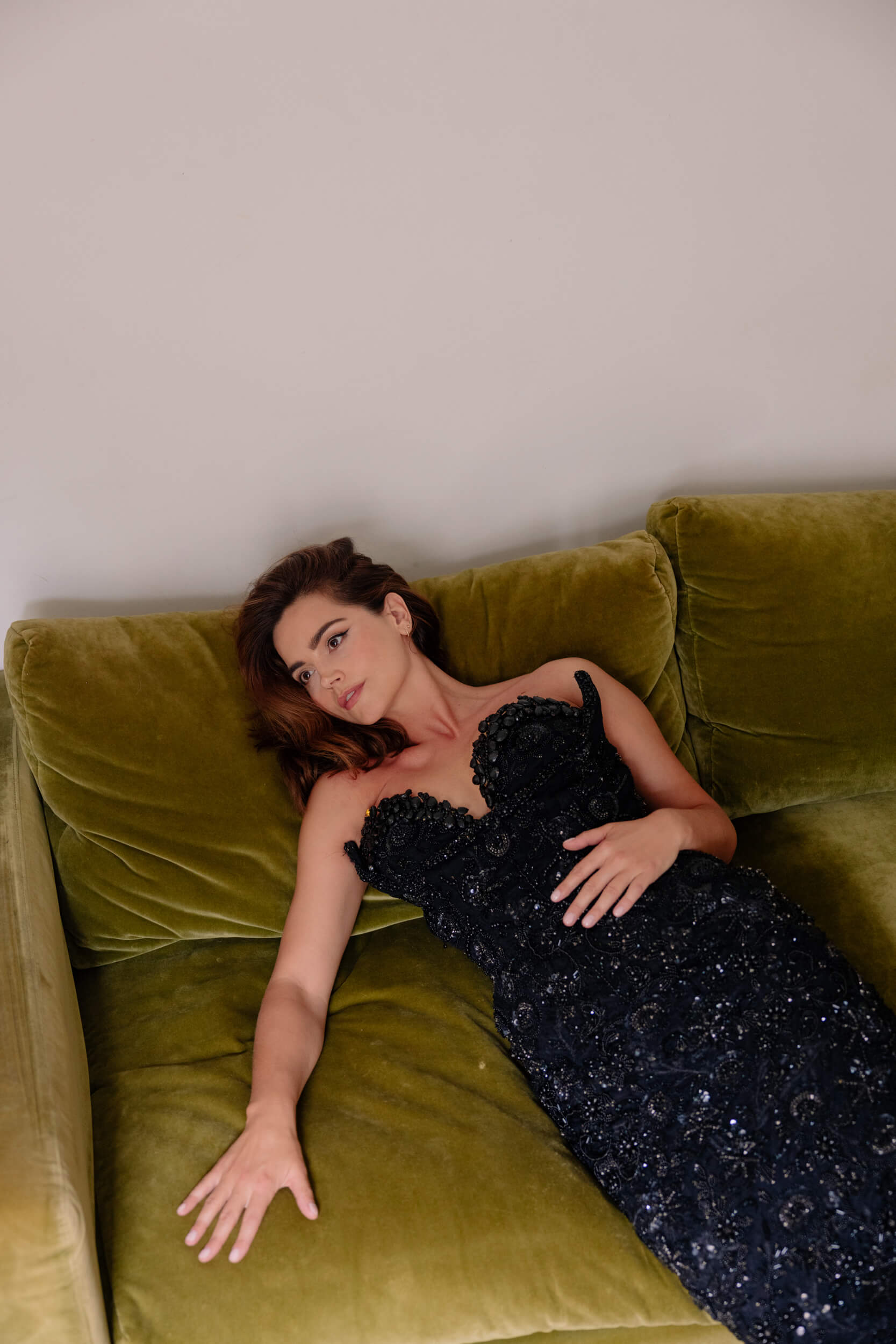
You’re biggest act of rebellion?
Honestly, probably finding a way to say no to things.
You’re biggest fear?
I’m not a fan of spiders [laughs]. But my biggest fear is time.
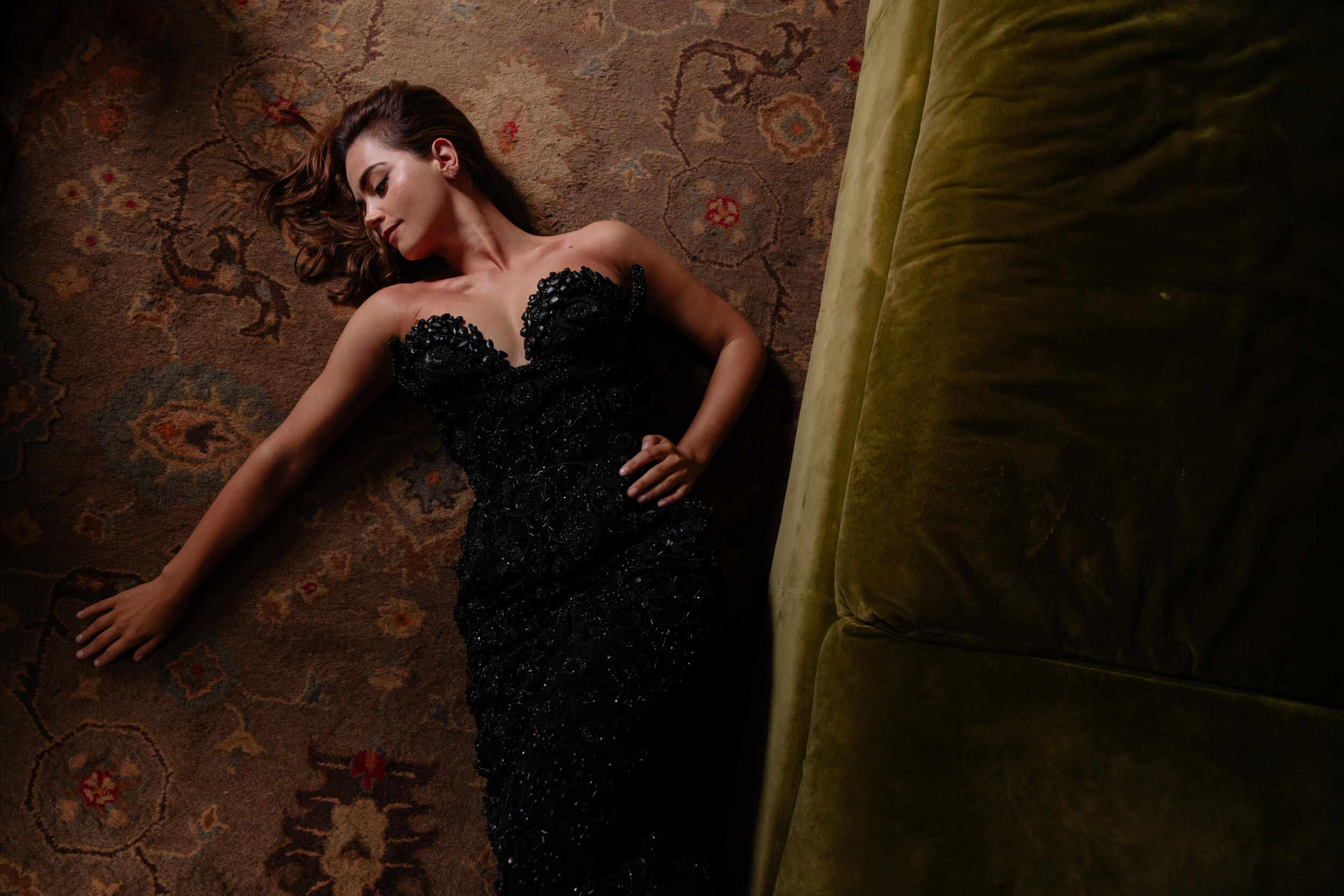
What does it mean to you to feel comfortable in your own skin?
It means not to be shy, not to hide, not to be afraid to be seen.
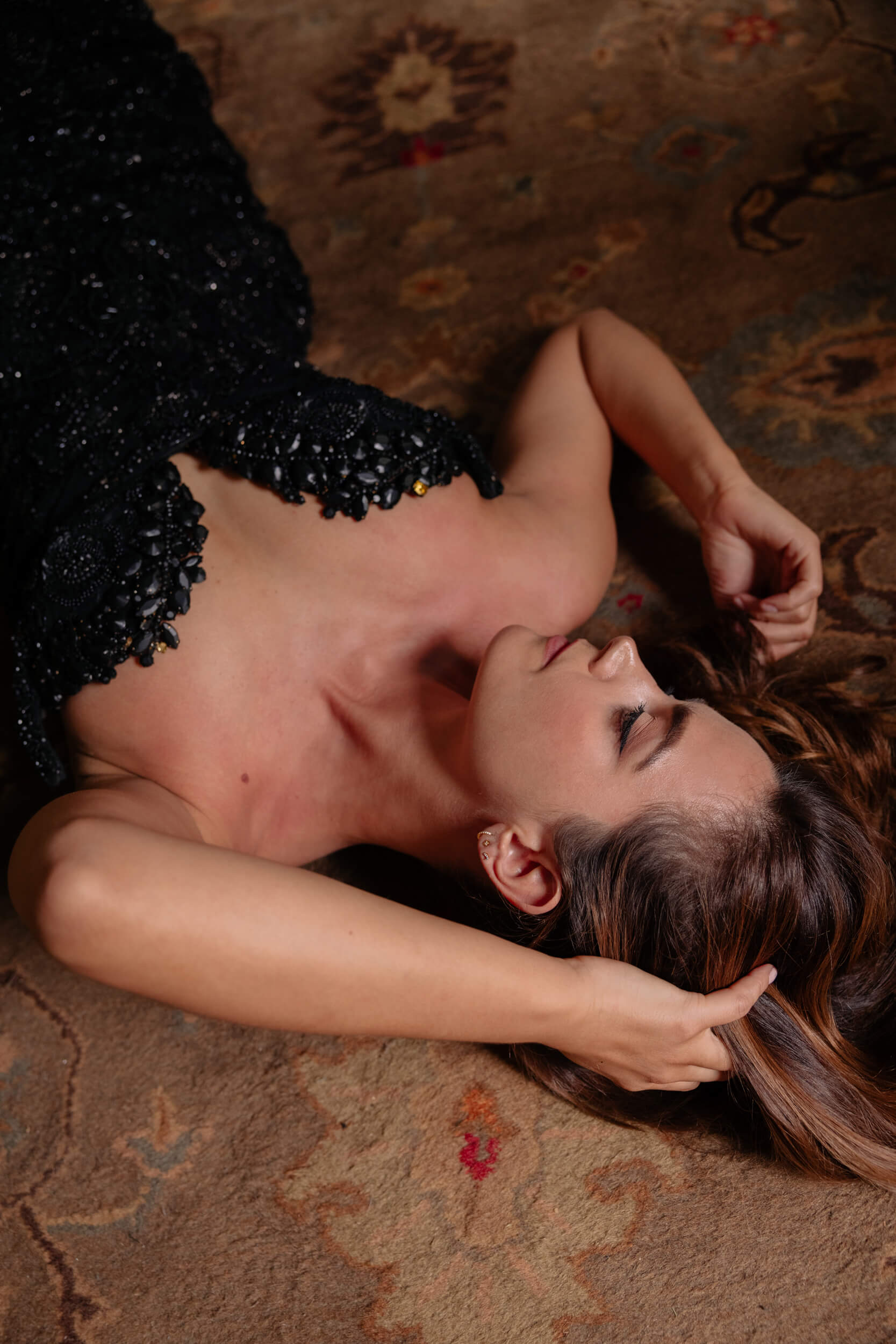
The book on your nightstand.
I’m reading “Hot Milk” by Deborah Levy and then on my nightstand I also have “The Days of Abandonment” by Elena Ferrante, I love her so much. I love the series “My Brilliant Friend”, I haven’t watched the latest season, but I love it so much, and I love the books, too. During lockdown, I went to Ischia and while I was there, I felt like I was in one of those novels.
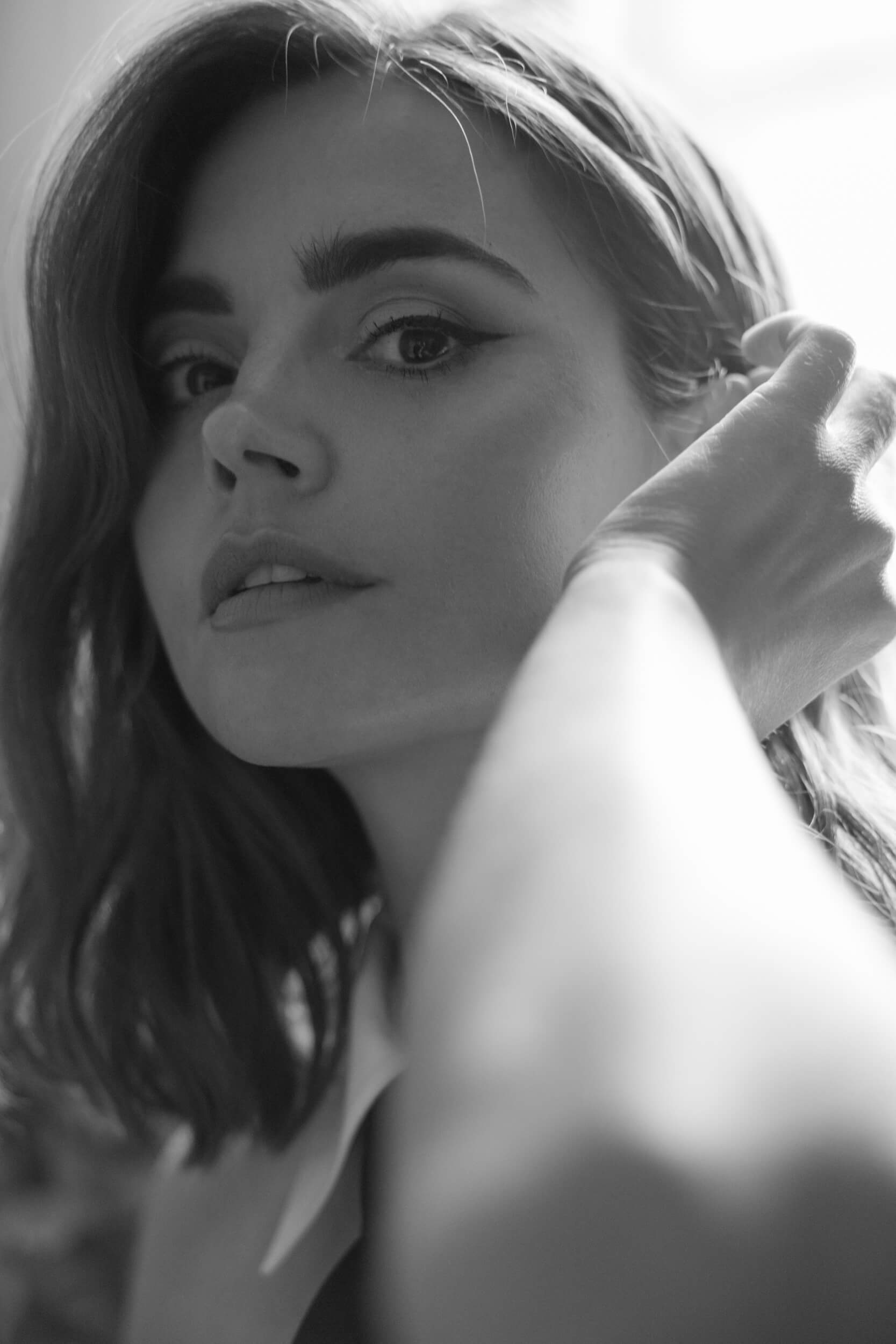
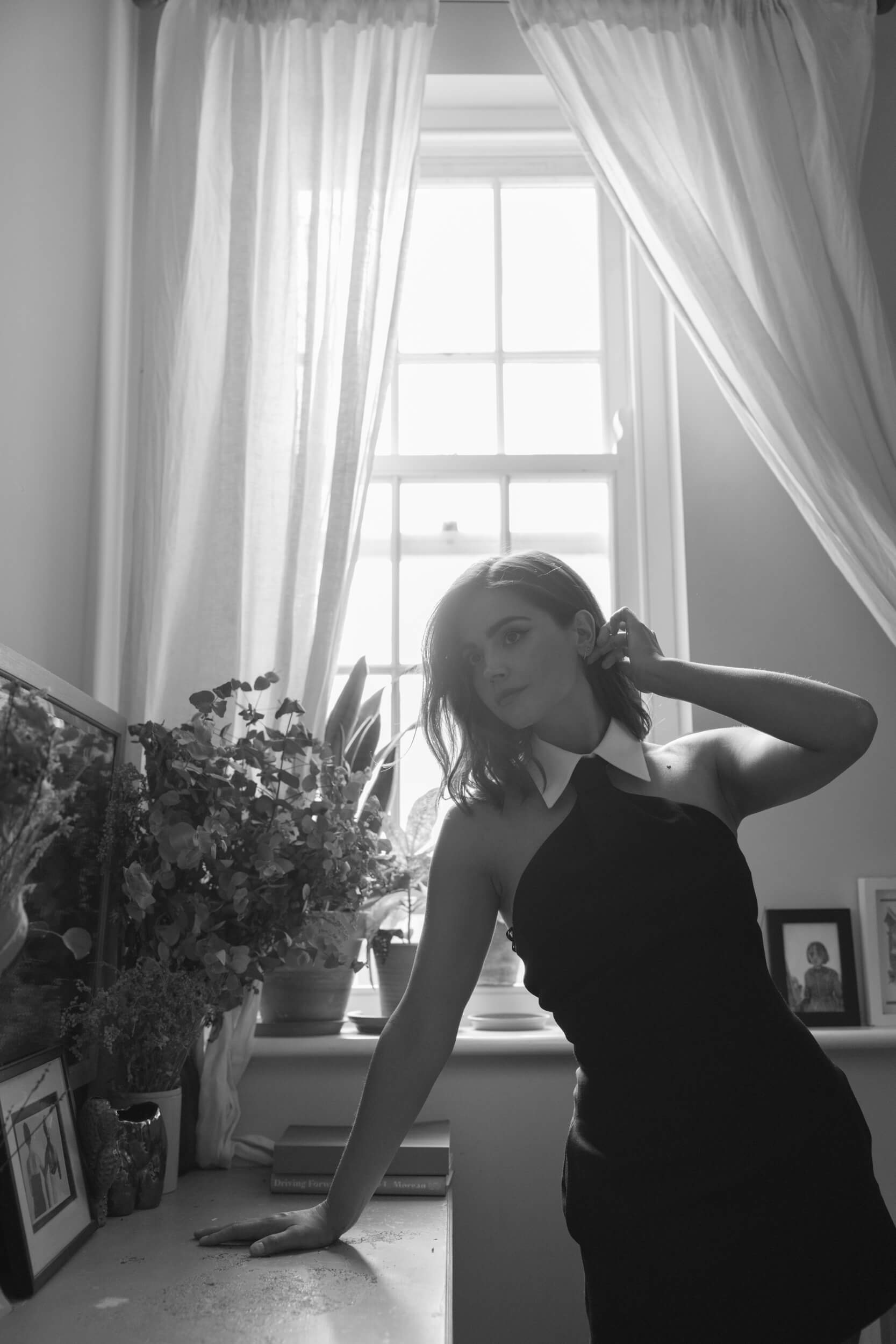
What’s your happy place?
My happy place is home, with my partner, with a book, calm, with a fire.
Photos & Video by Johnny Carrano.
Makeup by Gabriella Floyd using Fenty Beauty.
Hair by Maarit Niemela.
Styling by Leith Clark.
Assistant styling Alison Flora Carmichael.

